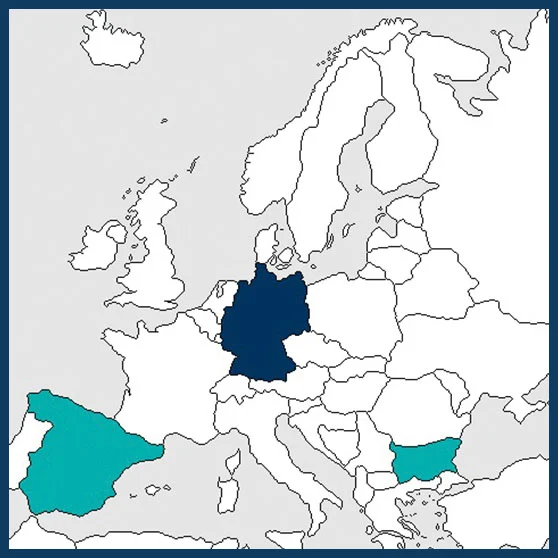12-2016 to 11-2019
€ 739,584
Katrina Marsden
marsden@adelphi.de
Adelphi Research gGmbH, Berlin, GERMANY (Coordinator)
University of National and World Economy, Sofia, BULGARIA
Institut für Agraökologie und Biodiversität, Mannheim, GERMANY
Sciences, Madrid, SPAIN
Universidad de Extremadura, Plasencia, SPAIN

The intensification of agriculture and the conversion of semi-natural areas to cropland are considered as serious threats to biodiversity in Europe. They have led to a loss of Green and Blue Infrastructure (GBI) in agricultural landscapes. GBI includes landscape structures and habitats such as hedges, water meadows, field margins and woodland, essential for ensuring connectivity between habitats and allowing the migration of species. The “Greening” of the Common Agricultural Policy (CAP) (the introduction of compulsory agri-environment requirements in the 2014-20 CAP) should help support GBI by encouraging measures across the wider countryside. Farming systems across Europe are however highly variable and the impacts on different types of system have yet to be evaluated.
BIOGEA has the following objectives:
• Understand the impacts of greening on the quantity and quality of GBI in the agricultural landscape;
• Understand the short-, medium- and long-term effects of GBIs on biodiversity and ecosystem services at different spatial scales and under different land uses;
• Examine the potential for indicators to measure GBI and the linked biodiversity and ecosystem services;
• Explore ways in which this knowledge can be used to design, develop and manage more resilient GBIs.
Analyses will be carried out both vertically and horizontally: a top-down analysis, from an EU wide scale to a local scale will be complemented by a more regional approach through comparative analyses in German, Spanish and Bulgarian case studies. Through this, the following will be examined:
• The EU targets for GBI and greening and their translation into national law. This will be carried out through policy analysis;
• The actual CAP policy implementation and advice provision in six example regions (one intensive and one High Nature Value in each member state). This will be examined through surveys, interviews and workshops on the national and local level;
• The impacts of these CAP policy implementation on biodiversity and ecosystem services, such as climate mitigation, landslide decrease or diversity of insects (through the increase of habitat connectivity thanks to GBI for example) will be examined through biological field work and modeling.
The development and implementation of political instruments as well as guidance and tools for farmers and their advisors will be supported through the involve- ment of a ‘Participatory Research Development Network’ (PRDN). This will occur through a series of workshops, round tables, local learning laboratories and a final conference.